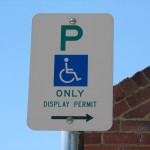 Jim Cline and Erica Shelley Nelson
Jim Cline and Erica Shelley Nelson
Representing the Injured or Disabled Member
Part 3: The General Duty to Accommodate a Disability
This article is the 3rd in a multiple part series covering the rights your injured and disabled members have and how you, as a union or guild representative, can best assist them. Over the next two to three months, we’ll be publishing, in various segments, information on how state and federal laws protect your members who are hurt or otherwise unable to work. We’ll cover topics including disability discrimination law, the FMLA, job protection rights under the CBA, workers compensation, disability benefits, and the right to bring a civil lawsuit.
The topics we are covering all also going to be addressed in detail in an upcoming book we’re publishing: Helping the Injured or Disabled Member: A Guidebook for the Washington Law Enforcement and Fire Union Representative. It is also our intention over the course of the next year to travel through the state and provide training to public safety union and guild representatives on how best to enforce these rights. Expect to hear more on that in the months ahead.
The Third article in these newsletter series provides an introduction to the duty of accommodation under disability laws. For more information, visit our Premium Website. On the website you’ll find an on line version of the Injured or Disabled Member’s Guidebook and other information on the laws covering your members [Disability Discrimination] Also on the premium website is an extensive case table that identifies the duty to accommodate in the context of various types of injuries and limitations [link to the accommodation case table].
Much attention has been paid by public safety employers, and unions as well, to the Americans with Disabilities Act (ADA). But the focus on the ADA has often been misplaced. There are three different disability discrimination statutes which apply to Washington public safety employers, and, in some respects, the ADA is the least stringent of these three.
The ADA was preceded by another federal law, the Rehabilitation Act of 1973.[1] The Rehabilitation Act prohibits discrimination against disabled persons by federal agencies and all entities receiving federal financial assistance.[2] The ADA broadened the coverage against discrimination to reach most employers, private and public.[3]
Most local governments in Washington are subject to the Rehabilitation Act because they need only receive a nominal amount of federal assistance in order to qualify for the Act’s jurisdictional requirements. Separately, Washington State law RCW 49.60.180 also prohibits discrimination against persons with disabilities.
In the next article in this series we’ll discuss the key differences between these state and federal laws.
[1] 29 U.S.C. § 790, et seq.
[2] 29 U.S.C. § 794(a).
[3] 42 U.S.C. § 12111.



